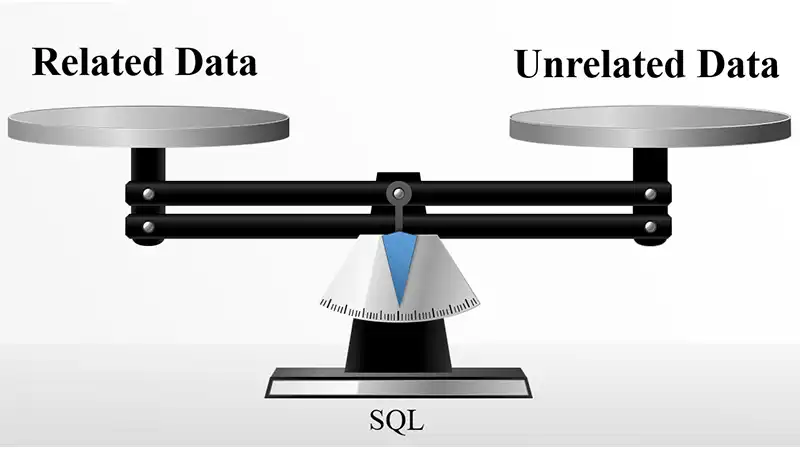[Explained] Is It OK to Have a Database of Unrelated Data?
Generally, it is not recommended to have a database of unrelated data. Databases are designed to manage related data for easy retrieval and analysis efficiently. When data is unrelated, challenges arise in identifying patterns, executing efficient queries, and integrating with other data sources. This can hinder data security, analysis, and overall usability.
While there might be exceptions, such as small and simple data sets or non-analytical use cases, it’s crucial to evaluate the benefits and drawbacks carefully.

Downsides of Storing Unrelated Data in a Single Database
5 crucial downsides of storing unrelated data in a single database are shown below –
1. Data Organization
Databases are optimized to handle structured data with defined relationships. Unrelated data might lack a logical structure, making organization and management complex and convoluted.
2. Query Efficiency
The efficiency of retrieving specific information from a database relies on its structure. Unrelated data could result in inefficient queries, making it time-consuming and resource-intensive to extract the desired information.
3. Analysis Difficulty
Meaningful analysis and insights often stem from understanding relationships within the data. Unrelated data might lack these connections, hindering the ability to identify patterns or make informed decisions.
4. Integration Challenges
If the unrelated data needs to be integrated with other systems or databases, compatibility, and data mapping become cumbersome, potentially leading to data loss or inconsistency.
5. Security and Privacy Concerns
Combining unrelated data might inadvertently expose sensitive information. Privacy regulations and security risks could escalate due to the lack of a clear boundary between different types of data.
Acceptable Cases for Storing Unrelated Data in a Single Database
1. Non-Analytical Use Cases
If the primary goal is merely storing data for reference purposes, without the need for complex analysis or reporting, having unrelated data might be manageable.
2. Cheap and Efficient
Storage efficiency may be better since all data resides in one database. Though with cheap storage, this is less important now.
3. Easy Management
Managing one database instead of many separate administrative overheads can be reduced. Backups, access control, and other admin tasks are centralized.
4. Deeper Analysis
Combining different data types can sometimes reveal new insights through deeper data analysis. However, these connections may be difficult to identify.
Frequently Asked Questions and Answers (FAQs)
1. Are there security risks associated with having a single database of unrelated data?
Answer: Yes, having a single large database creates a bigger target for hackers and cyber-attacks. If breached, more data could be exposed. Separate databases with more limited data may reduce risks.
2. What are the privacy concerns when storing unrelated data in one database?
Answer: Privacy concerns arise, especially if the data contains any personal or sensitive information. Even if the data sets are not directly related, combining them can still raise privacy issues.
3. Are there hybrid approaches?
Answer: Yes, databases can be grouped into logical instances or clusters while still residing on the same physical database server when it makes sense.
To Conclude
Striking the right balance between consolidating data and maintaining its integrity and usability is key to making informed decisions about database design.
The best practice is to separate unrelated data into logical databases structured around subject areas and data relationships. This allows for faster querying, easier analysis, and tighter security controls tailored to each data type. Combining unrelated data is not an absolute prohibition, but it should have a justified purpose that outweighs the substantial trade-offs.







